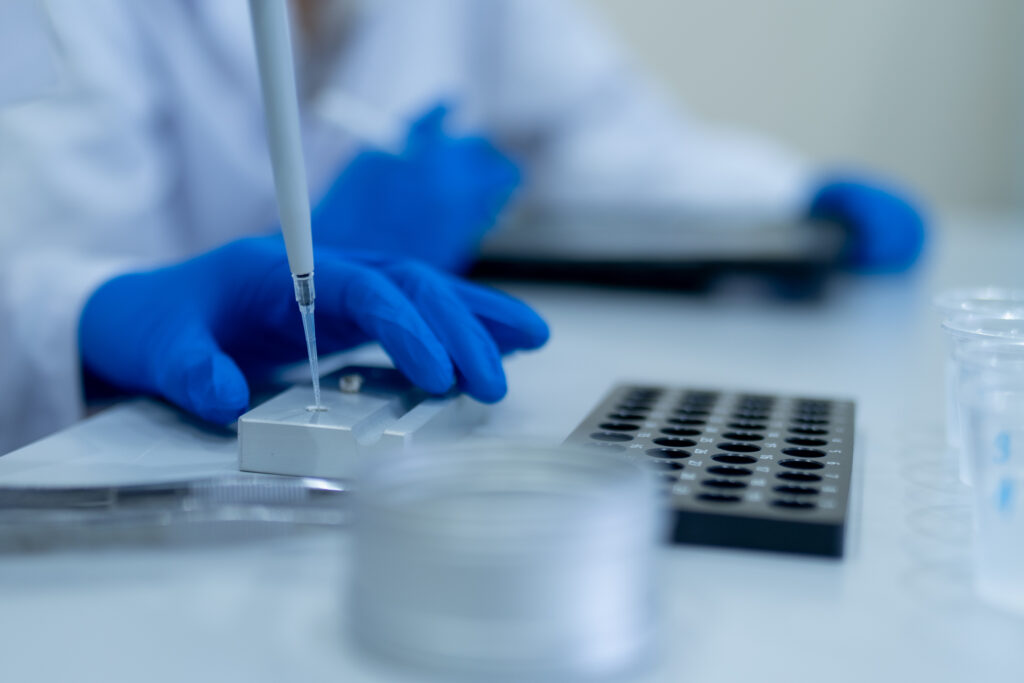Genetic testing plays a crucial role in resolving the complexities of developmental and genetic disorders in children. By examining DNA, these tests provide insights into genetic variations that could influence a child’s health or development. Being aware of the various types of genetic tests available allows parents and healthcare providers to make informed decisions. Let’s dive into some key genetic tests commonly used to assess and diagnose developmental and genetic disorders in children.
What Are the Types of Genetic Tests?
1. Diagnostic Genetic Testing
Diagnostic genetic testing comes into play when a child exhibits symptoms of a disorder. It helps determine whether genetic abnormalities are the underlying cause. This type of testing can confirm or rule out suspected conditions like Fragile X syndrome or Down syndrome. By identifying the root cause of developmental issues, healthcare providers can tailor treatment options to meet the child’s specific needs.
2. Newborn Screening
Newborn screening is a routine procedure performed shortly after birth, designed to detect multiple genetic and metabolic disorders that might impact a child’s health if left untreated. Conditions such as phenylketonuria (PKU) and congenital hypothyroidism can be identified through newborn screening. Early detection allows for timely interventions, preventing serious developmental challenges later.
3. Carrier Testing
Carrier testing is typically conducted on parents or prospective parents, identifying carriers of genetic mutations that could be passed to their children, even if the carriers themselves show no symptoms. This test is particularly crucial for couples with a family history of genetic disorders, helping them understand the likelihood of transmitting conditions like cystic fibrosis or Tay-Sachs disease to their offspring.
4. Prenatal Genetic Testing
Performed during pregnancy, prenatal genetic testing detects specific genetic disorders in the developing fetus. Methods such as amniocentesis and chorionic villus sampling (CVS) analyze fetal DNA for chromosomal abnormalities and genetic disorders. While invaluable, prenatal testing is usually recommended only when there’s an increased risk of genetic conditions, allowing parents to prepare early and explore potential treatment options.
5. Predictive Genetic Testing
Unlike diagnostic tests, predictive genetic testing identifies the potential for disorders that may develop later in life. For families with a history of conditions that appear later, such as certain types of muscular dystrophy, predictive testing offers vital information. It enables healthcare providers and families to monitor the child closely and implement preventive measures when necessary.
6. Whole Exome and Whole Genome Sequencing
Whole-exome sequencing (WES) and whole-genome sequencing (WGS) are comprehensive tests that explore large portions of a child’s DNA. WES focuses on the exome, where most known genetic disorders originate, while WGS analyzes the entire genetic makeup. Both are highly effective for diagnosing complex or rare genetic conditions that standard methods might lack.
For a deeper understanding of how genetic testing aids in diagnosing developmental disorders, refer to our article on Genetic Testing for Developmental Disorders.
Choosing the Right Test
Selecting the appropriate genetic test depends on factors like family history, symptoms, and specific healthcare objectives. Some tests offer early detection for preventive strategies, while others confirm diagnoses to guide immediate treatment plans.
The Role of the Family Health Checker app
The Family Health Checker app supports parents concerned about their child’s developmental and genetic health by providing AI-powered assessments via a user-friendly platform. Many developmental delays may be linked to genetic factors and early diagnosis and intervention are essential. Parents can get an initial assessment by answering questions and uploading facial images to identify potential developmental and genetic concerns. After completing the assessment, they receive a report highlighting areas of concern with options for connecting with healthcare professionals for further evaluation and a no-cost genetic test for eligible children.
This secured app allows parents to assess their child’s developmental and genetic health from home. However, while AI tools can speed up diagnostics, consulting healthcare professionals for formal diagnoses and guidance is essential.
Genetic testing is a powerful tool for understanding children’s developmental and genetic disorders, from newborn screening to whole genome sequencing, each test offers distinct benefits. By collaborating with healthcare providers and genetic counselors, parents can make well-informed decisions ensuring optimal support and care tailored to their child’s needs.



